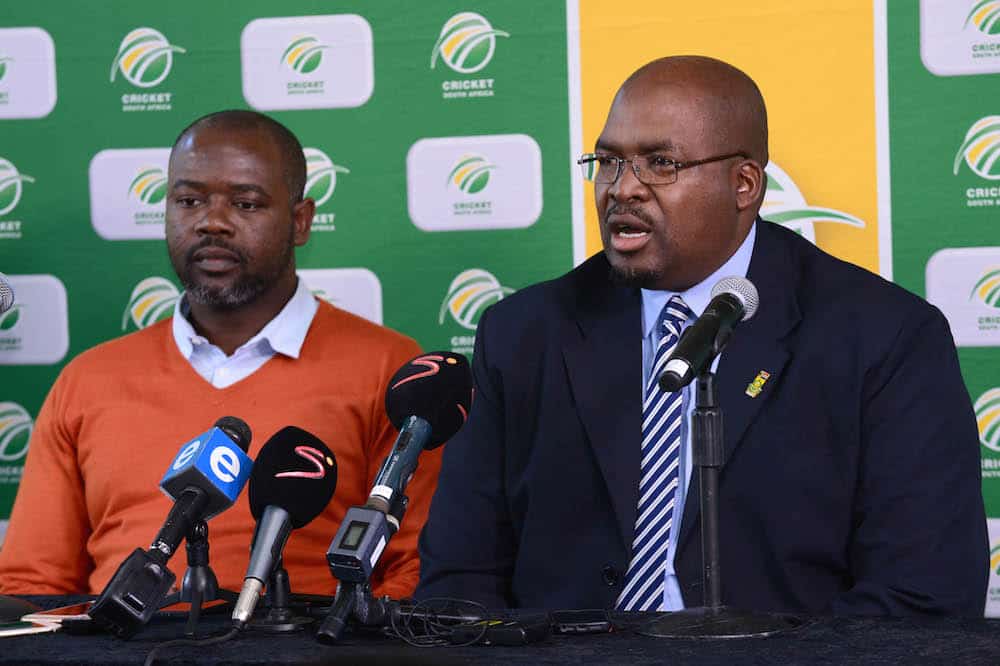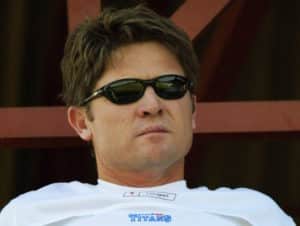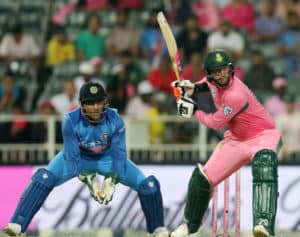South African cricket is complicated and fragile and in desperate need of a period of consolidation. This must come under new leadership, comments Luke Alfred.
Past experience teaches us that South African cricket has only two speeds. Either things move at a glacial pace, almost too slowly for the naked eye, or quicker than Janneman Malan while batting for the Cape Town Blitz in the first batting powerplay.
Early indications are that we might be entering the second phase, with a groundswell of opinion beginning to move against the besieged Cricket South Africa (CSA) chief executive, Thabang Moroe.
With England, our old foe, about to arrive on our doorstep, expect things to clatter forward at breakneck speed through December.
So, what’s changed?
Quick to act but slow to think through the consequences of his actions, Moroe has been a figure of contempt in the media for some time now. Unfortunately, through all of this he’s been largely protected by a board notably slow in coming to terms with the depths of cricket’s governance, financial and playing crisis.
Senior counsel Philip Ginsburg’s arbitration award in favour of the Western Province Cricket Association (WPCA) against CSA last week changed all that. In this age of fake news and under-sourced stories, junior newsrooms and non-existent budgets, the print media are easy to dismiss. They have agendas, they’re closet racists, they hate the ANC – the pantomime is well rehearsed.
A densely argued, 41-page arbitration, written by a well-respected senior counsel, however, can’t be wished away. This is firstly because it is independent and therefore has natural authority. Secondly, the award against CSA comes from outside the immediate cricket family. Thirdly this is because, despite our occasional bouts of lawlessness here in Mzansi, we still have a deep and abiding respect for the law.
Ginsburg had a field day at CSA’s expense last week, when on Wednesday he not only awarded costs to WPCA and told CSA to reinstate the 13-strong suspended WPCA board, but found holes in CSA’s procedures from beginning to end.
Ginsburg’s implication was that here is an organisation that can’t tie their own shoelaces properly.
ALSO READ: CSA responds to ‘unmediated attacks’
His arbitration award was not only critical of CSA operationally, but also of the board’s failure to apply its collective mind to what was really at stake in bullying an otherwise proud WP board into submission.
This would have rankled the CSA board. And it would have shamed the independent board members – Steve Cornelius, Dawn Mokhobo, Dr Shirely Zinn, Iqbal Khan and Marius Schoeman – more than most.
They, remember, are responsible to a greater degree than ordinary board members for ensuring that they discharge their fiduciary duties in a wise and even-handed manner.
This all sounds impressive but what does it actually mean?
It means that as independent directors they must always act in cricket’s best interests. They must rise above the rampant provincialism and serial pettiness of the South African game and say: ‘This is what’s best for South African cricket at this point in time.’
More than any of the five, Khan, as leading independent, is expected to keep such values uppermost in his mind. It is very difficult to see how the current five independents can argue in the WPCA matter that CSA was acting in the best interests of the game, particularly when WPCA letters weren’t responded to and suspending a board looks just a trifle heavy-handed.
Attention is beginning to fall on the independents and they are unlikely to be very comfortable in the spotlight.
Questions – belatedly – are also beginning to be asked of Chris Nenzani, the CSA president.
Nenzani has benefited from the current mess at CSA in substantive ways. He has already had two three-year terms of office as president, but the CSA constitution was amended at the AGM earlier this year to allow him to be president for another year.
This should be stopped. And Nenzani’s crony, Moroe, should also be stopped.
Before it’s too late and he does more damage. Like attempting to revoke five journalists’ accreditation on Sunday before someone saw the light and allowed at least two of them into Newlands to cover the MSL game between the Blitz and Tshwane Spartans.
As one CSA former chief executive told me on Monday: ‘I would have liked to have strangled a couple of the journalists’ necks – but I never considered revoking their accreditation.’
So, where do we find ourselves?
South African cricket is complicated and fragile and it needs a period of consolidation. For this to happen, Nenzani and Moroe must go – and quickly – and the independent board members must begin to discharge their obligations properly.
They’ve had their honeymoon. Now they need to start earning their trips to Zinkwazi (where the last CSA board meeting was held), their honorariums and their meeting fees.
Otherwise, state capture in cricket will continue at the same unchecked pace it has done since Moroe took over. And we’ll continue to disappear down the cricket drain.
Photo: Lee Warren/Gallo Images





